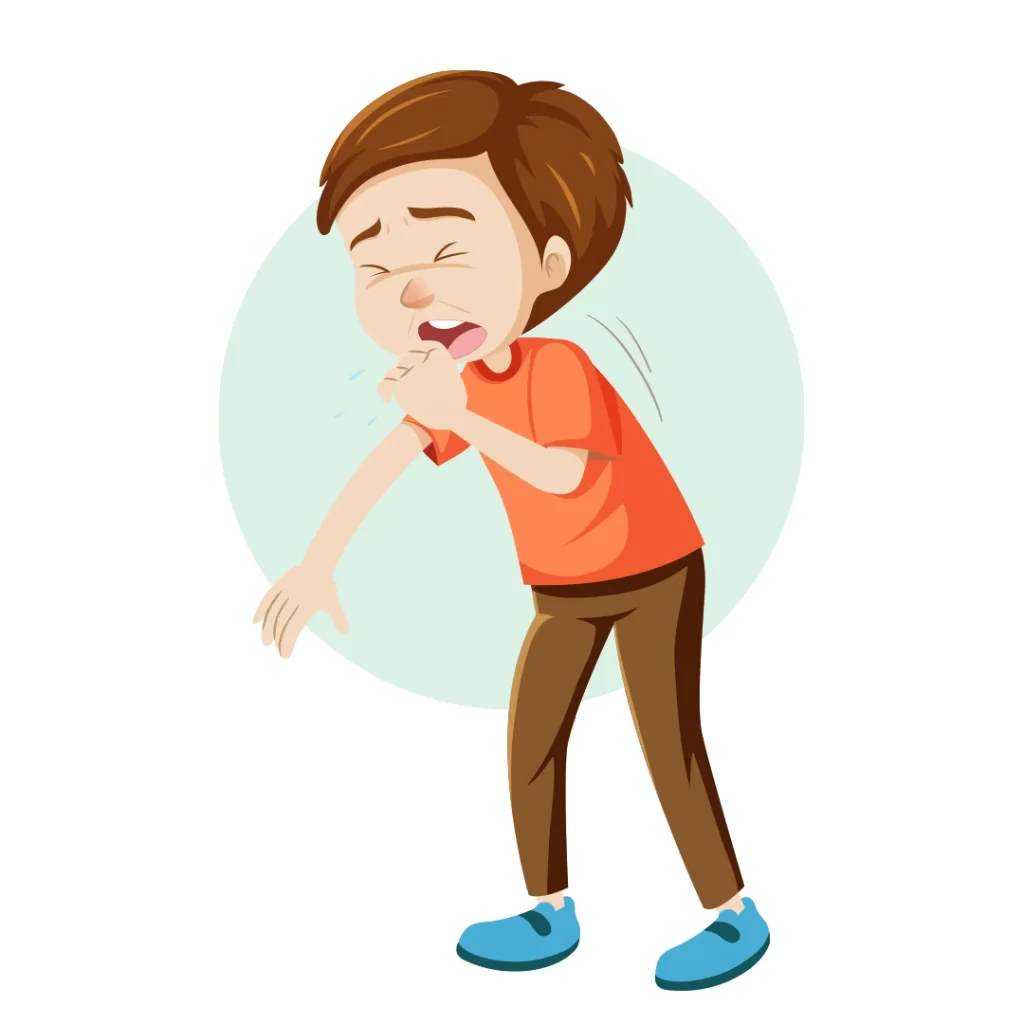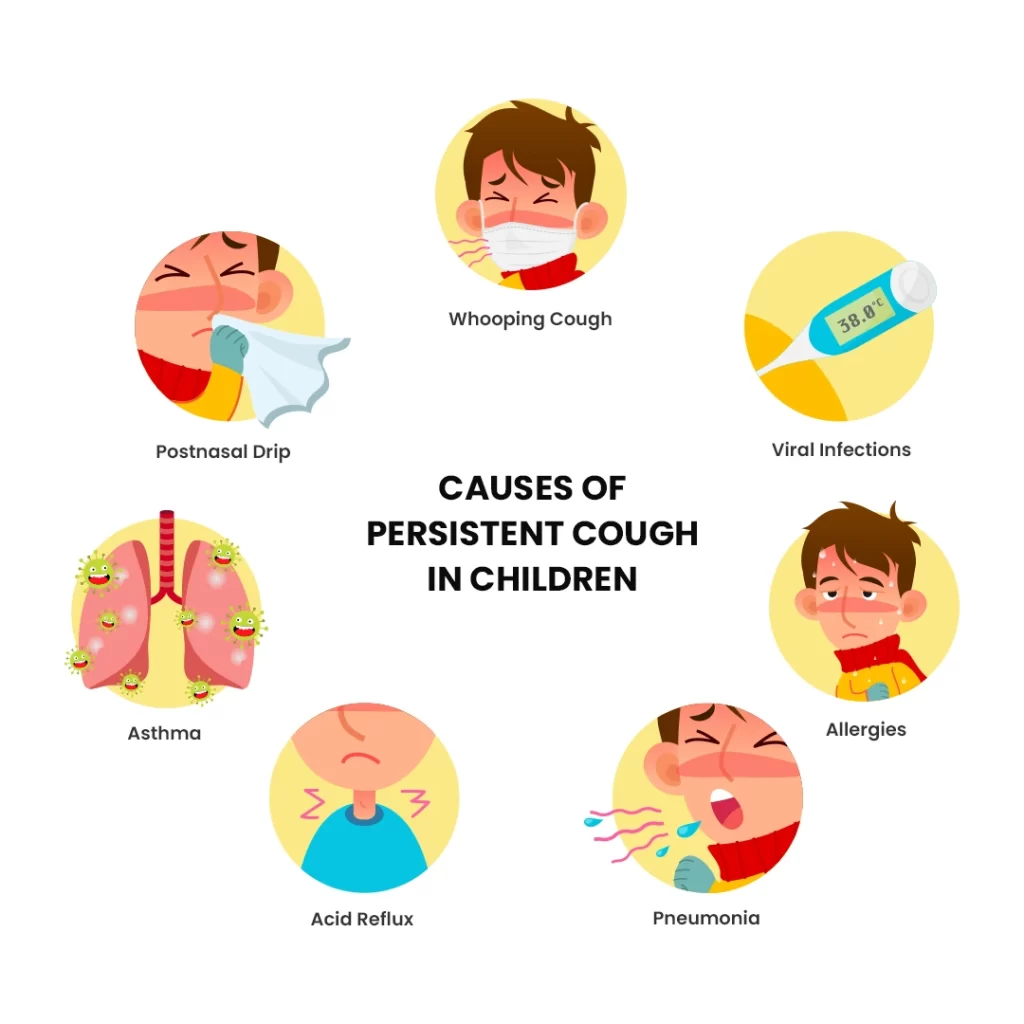Chronic Cough
Chronic Cough:
Cough is a symptom, not a disease on its own. It is a response triggered by irritants affecting various parts of the respiratory tract, from the nose and sinuses to the throat, windpipe, small airways, and even the tiny air sacs in the lungs, known as alveoli.
In children, cough is typically acute, often lasting around 5-10 days.

What are the Common Causes of Acute Cough in Children?
Viral infections in the respiratory tract are very frequent in children and are the primary cause of acute cough. These infections usually come with a runny nose, cold symptoms, mild fever, and cough that typically lasts for 5-7 days and often resolves on its own without specific treatment
However, in some cases, children may experience cough due to conditions like tonsillitis, pneumonia, or wheezing.
What is Chronic Cough?
- When a cough persists for more than 4 weeks, it is classified as chronic.

What Causes Chronic Cough in Children?
The causes of chronic cough in children differ from those in adults. The most frequent causes in children include asthma, postnasal drip, whooping cough, and tuberculosis. Less common causes might involve conditions such as foreign body aspiration, cystic fibrosis, chronic lung infections, congenital lung anomalies, and habit cough. Children with these less common conditions often exhibit specific warning signs that could indicate a serious underlying cause of chronic cough.
What are the Warning Signs Indicating a Potentially Serious Cause of Chronic Cough?
- Cough lasting longer than 6 months
- Persistent productive or moist cough
- Poor weight gain or weight loss
- Blood in sputum (hemoptysis)
- Repeated pneumonia
- Shortness of breath (dyspnea) at rest or with exertion
- Frequent infections in other body areas, such as the skin or abdomen
- Swallowing difficulties
- Chest X-ray showing abnormal patches or pneumonia
How is Chronic Cough in Children Evaluated?
- Initially, a detailed medical history and physical examination are performed. This is followed by a review of previous medical records and any chest X-rays, if available. Basic tests might include a chest X-ray (if not already done), sinus X-rays, and spirometry or lung function tests.
- In certain cases, further investigations may be necessary, such as a chest or sinus CT scan, assessments for gastroesophageal reflux, flexible bronchoscopy, or a sweat chloride test.
